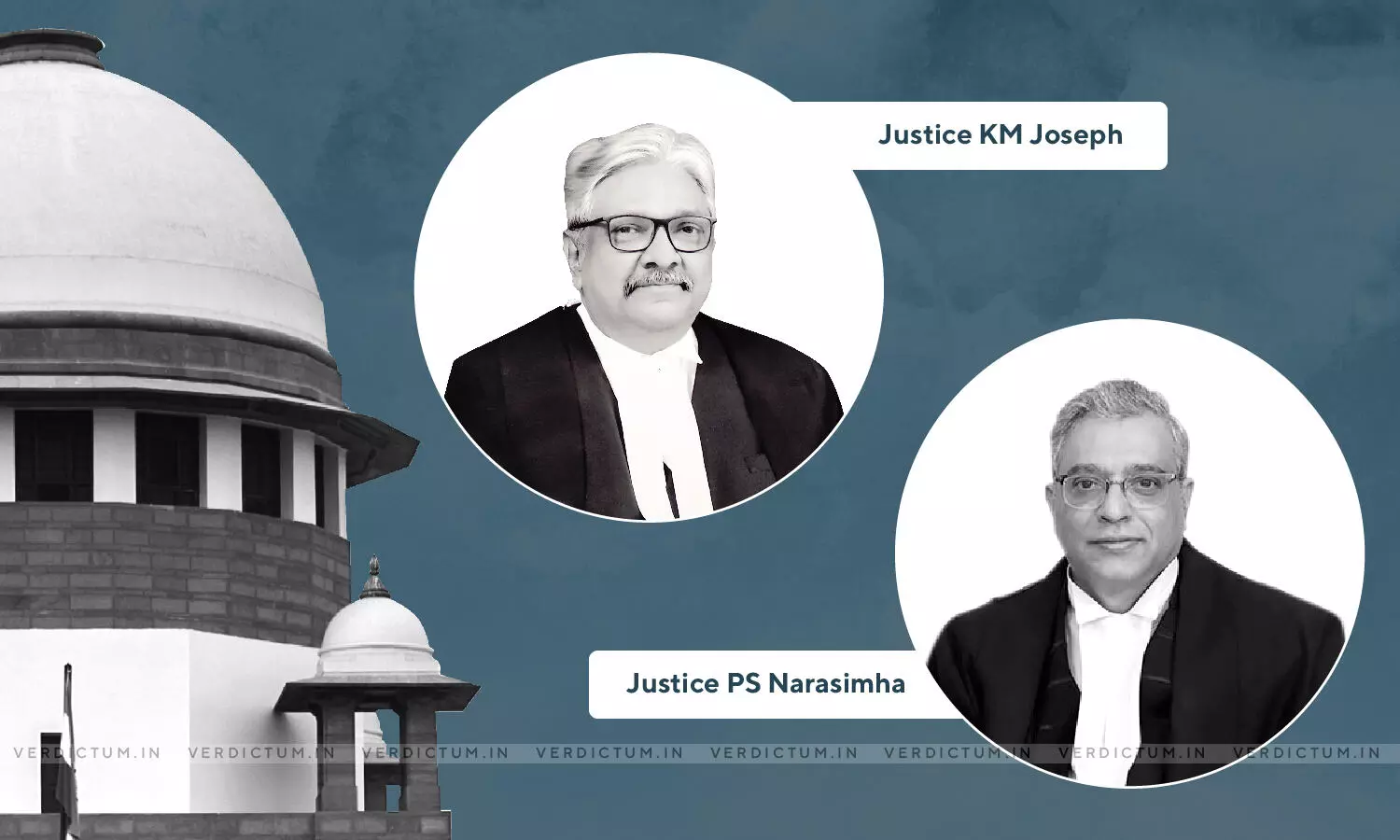
Rule 30 Of Air Act Expressly Excludes Applicability Of Limitation Act - Supreme Court In A Case Filed Against British Airways
 |
|The Supreme Court Bench comprising of Justice KM Joseph and Justice PS Narasimha dismissed an appeal filed against the Order of the Bombay High Court and held that a suit filed against British Airways would not be barred by limitation, as the Air Act 1972 expressly excludes the applicability of Limitation Act.
Facts & History of the Case
The Appellant is a proprietary Concern engaged in the business of imports and exports. Cargos sent via Respondent-Airlines' planes could not be delivered to the destination as they were destroyed due to bad weather conditions. The Appellant raised a claim for damages and the Respondent duly agreed to settle the matter at 50% of the claim amount. However, the Respondent failed to keep up their word. On that, the Appellant filed a suit before the Trial Court, where the Respondent-Airlines contended that the suit would be barred by Limitation.
The Trial Court held that the suit would not be barred by limitation relying on Section 18 of the Limitation Act, thereby considering the Limitation Act to be applicable to the Air Act. However, on appeal, the High Court rejected the findings of the Trial Court and held that the suit would be barred by limitation. While allowing the appeal, the Bombay High Court observed that the Air Act being a special statute would have an overriding effect on the Limitation Act, which is a general statute.
Issue 1 – Whether Limitation Act, 1963 is applicable to period specified in Rule 30 of the Second Schedule of the Carriage by Air Act, 1972 and
Issue 2 - Whether Rule 30 of the Air Act expressly excludes the applicability of Limitation Act?
Mr. Vinay Navare, Senior Advocate appearing on behalf of the Appellant submitted that Section 29(2) of the Limitation Act provides for the Act to be applicable to any law as long as it is not expressly excluded and as such Rule 30 of the Air Act does not expressly exclude applicability of the Limitation Act.
Ms. Ritu Singh Mann, Advocate representing the Respondent-Airlines relied on Hukumdev Narain Yadav v. Lalit Narain Mishra and argued that the exclusion of applicability of the Limitation Act can be made out in Rule 30 of the Air Act and as such the suit initiated by the Appellant would thus be barred by Limitation.
In this context, the Bench noted that – "The rival submissions surface due to an apparent conflict between Sub-Rule (1) and Sub-Rule (2) of Rule 30 of the Second Schedule. While Sub-Rule (1) extinguishes the right itself upon the expiry of the period of two years, after which nothing would remain for enforcement, Sub-Rule (2) seems to suggest that the Court seized of the case can apply the law of limitation applicable to its proceedings and entertain the suit of the proceedings."
On Issue 1 the Bench held that the right to damages would be extinguished after the expiry of 2 years. Therefore the provisions of the Limitation Act would have no application as there would be no existing right to be enforced.
On Issue 2, the Bench in its findings observed that – "The (Warsaw) Convention certainly incorporated two variables in the context of reckoning the period specified in Rule 30 (1) of limitation. The first event relates to the time, which is a fixed period of two years. The second event relates to the commencement of cause of action. .." the only event that remains is the date on which the action for damages is initiated as this would depend upon the law of the Court seized of the case. Rule 30(2) specifically provides that "the method of calculating the period will be determined by the law of the Court seized of the case."
The Bench opined that – "Sub-Rule (2) must therefore be interpreted harmoniously keeping in mind not only the content of Sub-Rule (1) but also the purpose and object of the Convention which is to bring about the unification of Rules relating to International Carriage by Air""
Held
In view of the above, the Bench on examining the provisions of the Carriage by Air Act, 1972 and relying on Section 29 of the Limitation Act, 1963 has held that Rule 30 expressly excludes the Limitation Act and that the suit would not be barred by limitation.Cause Title - M/s. Bhagwandas B. Ramchandani v. British Airways
Click here to read/download the Judgment